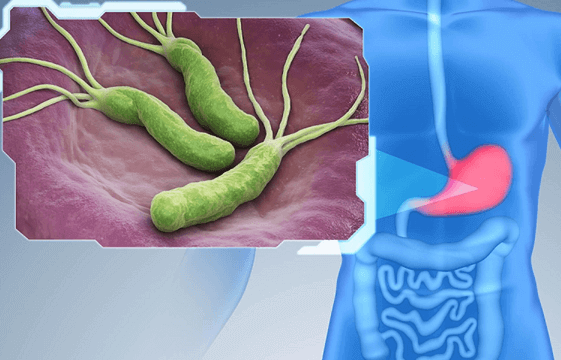wellhealthorganic.com : key signs of gastroenteritis

Introduction to Gastroenteritis
Gastroenteritis, commonly referred to as the stomach flu, is an inflammation of the gastrointestinal tract involving the stomach and the small intestine. Symptoms can include diarrhea, vomiting, and abdominal pain. Early recognition and management of gastroenteritis are crucial for preventing severe dehydration and other complications.
wellhealthorganic.com: Key Signs of Gastroenteritis
Overview of Symptoms
Gastroenteritis presents a range of symptoms that vary in severity and duration. The primary symptoms include sudden onset of diarrhea and vomiting. Secondary symptoms may involve muscle aches, fever, and headaches, which provide cues for differentiating between types of gastroenteritis.
Detailed Analysis of Key Signs
Nausea and Vomiting: These are the body’s first response to the infection in the gastrointestinal tract. The intensity can vary, and persistent vomiting can lead to dehydration.
Diarrhea: Characteristics and Concerns: Diarrhea from gastroenteritis is typically watery and may contain blood and mucus. Frequent episodes can quickly lead to dehydration, particularly in children and the elderly.
Stomach Pain and Cramping: The pain is usually around the mid to lower abdomen and can range from mild discomfort to severe pain.
Fever and Chills: Not all cases of gastroenteritis have a fever, but its presence can indicate a more severe infection.
Muscle Aches and Fatigue: These are common due to the body’s overall inflammatory response to the infection.
Dehydration: Recognizing the Subtle Signs: Symptoms include dry mouth, decreased urine output, and severe weakness. It is critical to recognize these early, especially in vulnerable populations.
Causes and Risk Factors of Gastroenteritis
Infectious vs. Non-Infectious Causes:
- Viral Gastroenteritis is the most common, caused by norovirus or rotavirus.
- Bacterial Gastroenteritis can be due to E.coli, Salmonella, or other bacteria.
- Parasitic Gastroenteritis occurs less frequently and can be caused by organisms like Giardia.
Common Risk Factors:
- Age-Specific Risks: Infants and the elderly are particularly susceptible.
- Environmental and Lifestyle Factors: Poor hygiene, unsanitary water supplies, and crowded living conditions increase the risk.
Diagnosing Gastroenteritis
When to Seek Medical Help
Immediate medical attention is required if there is blood in the stool, high fever, signs of dehydration, or persistent vomiting.
Common Diagnostic Tests for Gastroenteritis
Laboratory Tests: Stool samples are analyzed to identify the specific cause. Imaging and Other Diagnostic Tools: These are generally not necessary unless complications are suspected.
Treatment Options for Gastroenteritis
Home Remedies and Self-Care
Hydration Solutions: Oral rehydration salts or clear fluids are recommended to prevent dehydration. Suitable Diet During Recovery: Bland foods such as bananas, rice, applesauce, and toast are advisable as symptoms improve.
Medical Treatments
When Prescription Medication is Needed: Antiemetic drugs for nausea or antidiarrheal medications might be prescribed. The Role of Antibiotics and Other Medications: Antibiotics are only used for certain types of bacterial gastroenteritis.
Preventive Measures for Gastroenteritis
Everyday Preventive Actions
Hygiene and Sanitation Practices: Regular handwashing is crucial. Food Safety Tips: Proper food preparation and storage are essential to prevent bacterial gastroenteritis.
Preventive Healthcare
Vaccinations and Prophylactic Treatments: Vaccinations are available for rotavirus and some causes of bacterial gastroenteritis.
Long-Term Effects and Management of Gastroenteritis
Potential Complications
Chronic Digestive Issues: Persistent symptoms might require further investigation. Rehydration and Recovery Tips: Continuous fluid intake and gradual reintroduction of solid food are important for recovery.
Lifestyle Adjustments Post-Recovery
Diet and Activity Recommendations: A gradual increase in dietary fiber and regular physical activity can help restore digestive health. Monitoring for Recurrence: Being alert to the signs of gastroenteritis can prevent future severe episodes.
FAQs about Gastroenteritis
What are the most common organisms that cause gastroenteritis? The most common causes are norovirus and rotavirus for viral types, and E.coli and Salmonella for bacterial infections.
How long does gastroenteritis last? Most cases resolve within a few days without medical intervention. However, symptoms can persist for up to 10 days in some cases.
Can gastroenteritis be prevented through diet? While a specific diet cannot prevent gastroenteritis, maintaining good food hygiene and avoiding undercooked meats and unpasteurized milk can reduce risk.
Is gastroenteritis contagious? Yes, gastroenteritis can be highly contagious. It can spread through contaminated food, water, or contact with an infected person.
Should antibiotics be used for gastroenteritis? Antibiotics are not effective against viral gastroenteritis and are only prescribed for certain bacterial infections after a doctor’s assessment.
Can gastroenteritis cause long-term damage? In severe cases, especially without proper management, gastroenteritis can lead to chronic digestive problems or severe dehydration, but these are not common.
Conclusion
Recognizing the key signs of gastroenteritis and understanding the available treatments and preventive measures are vital for managing this uncomfortable and potentially dangerous condition effectively. With appropriate care, most individuals recover completely without long-term effects.




